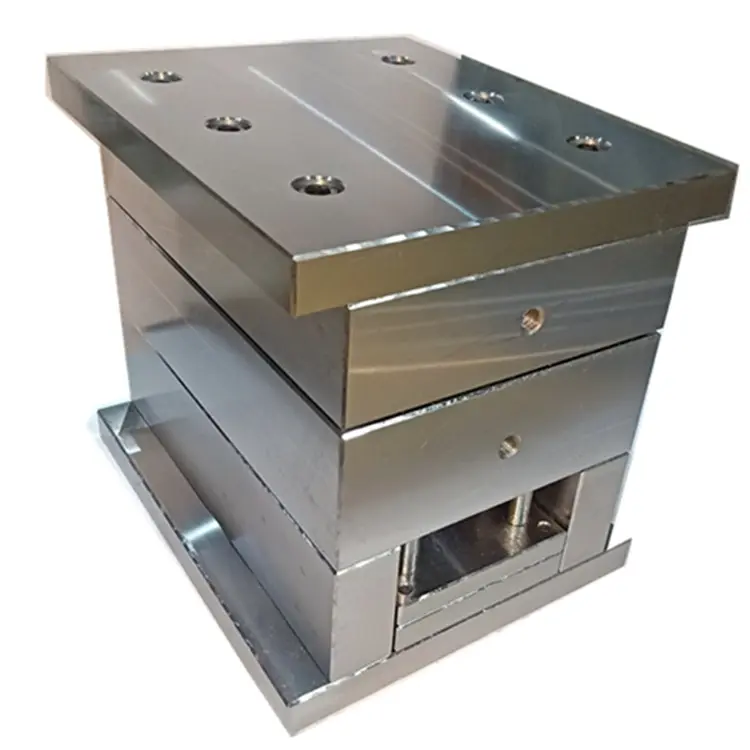In an era characterized by rapid technological advancements and increasing competitiveness, the manufacturing industry in Thailand has witnessed substantial transformation. One pivotal element that plays a crucial role in this transition is the understanding and application of mold steel. Mold steel is fundamental in ensuring the success of various manufacturing processes, particularly in industries such as automotive, electronics, and consumer products. This article explores essential insights into mold steel, emphasizing its significance for Thailand's manufacturing landscape.
What is Mold Steel?
Mold steel refers to high-quality steel that is specifically designed for the production of molds used in forming, shaping, and manufacturing processes. It possesses unique properties, including hardness, wear resistance, toughness, and the capability to withstand high temperatures. These characteristics make mold steel an ideal choice for producing metal dies, plastic injection molds, and various stamping tools.
The Importance of Mold Steel in Manufacturing
The manufacturing industry in Thailand heavily relies on mold steel due to its critical role in enhancing product quality and production efficiency. The following benefits highlight the importance of mold steel:
- Durability: Mold steel is engineered to endure extensive wear and tear, resulting in longer tool life and reduced production downtime.
- Precision: The superior hardness and stability of mold steel enable manufacturers to produce components with exact specifications.
- Cost-Effectiveness: Investing in high-quality mold steel can lead to lower maintenance costs and improved overall operational efficiency.
- Versatility: Mold steel can be used across a variety of industries, making it a valuable asset for manufacturers looking to diversify their capabilities.
Types of Mold Steel
Understanding the different types of mold steel available is crucial for Thai manufacturers. Below are some common types of mold steel used in various applications:
- P20 Steel: Known for its excellent toughness and ease of machining, P20 is ideal for plastic injection molds.
- S7 Steel: S7 steel is impact-resistant and commonly used for making die molds in challenging environments.
- H13 Steel: This type of steel is designed for high-temperature applications, suitable for hot work tooling.
- D2 Steel: Recognized for its wear resistance, D2 steel is often used in die applications that require precision.
Challenges in Choosing the Right Mold Steel
Selecting the appropriate mold steel can be a daunting task for manufacturers in Thailand. Some common challenges include:
- Cost Constraints: With various options available, manufacturers must balance quality with budget constraints.
- Application Requirements: Different manufacturing processes require specific mold steel properties, making the decision complex.
- Supply Chain Issues: Given the global market dynamics, sourcing high-quality mold steel can sometimes pose challenges.
Best Practices for Mold Steel Maintenance
Maintaining mold steel is essential to prolonging its lifespan and ensuring optimal performance. Here are some best practices that Thai manufacturers can adopt:
- Regular Inspections: Conduct frequent checks for signs of wear and tear to address issues proactively.
- Proper Cleaning: After each use, ensure that molds are thoroughly cleaned to prevent rust and corrosion.
- Lubrication: Utilize appropriate lubricants to minimize friction and wear during operation.
- Monitoring Operating Conditions: Consistently track temperature and operational settings to prevent excessive stress on mold steel.
Advancements in Mold Steel Technology
The mold steel industry is continually evolving, with recent advancements driving significant improvements. Notable developments in this area include:
- Enhanced Coatings: The use of advanced coatings can significantly improve the wear resistance of mold steel.
- 3D Printing: Innovations in 3D printing technology allow for the rapid prototyping of molds, reducing lead times.
- Smart Manufacturing: The integration of IoT and AI technologies is revolutionizing mold maintenance, enabling predictive analytics for mold performance.
Conclusion: The Future of Mold Steel in Thailand's Manufacturing Sector
As Thailand’s manufacturing industry continues to grow and adapt to global trends, understanding mold steel becomes increasingly vital. Through the strategic application of high-quality mold steel, manufacturers can enhance productivity, improve product quality, and remain competitive in the international market. Thai manufacturers must stay informed about the latest trends and best practices in mold steel selection and maintenance to fully leverage its benefits. By investing in mold steel and implementing the best practices discussed in this article, Thailand's manufacturing industry can pave its way toward a prosperous and innovative future.

